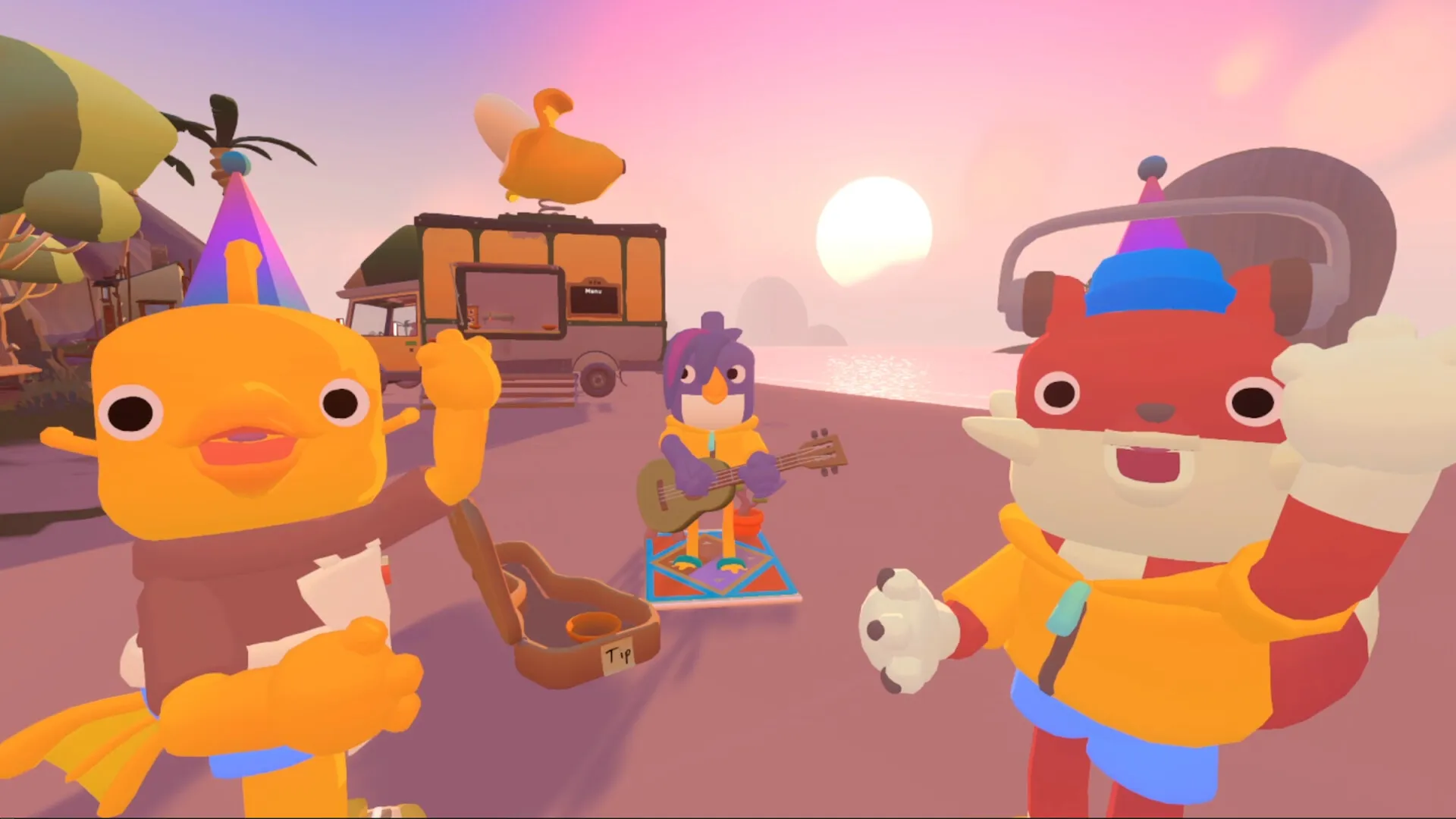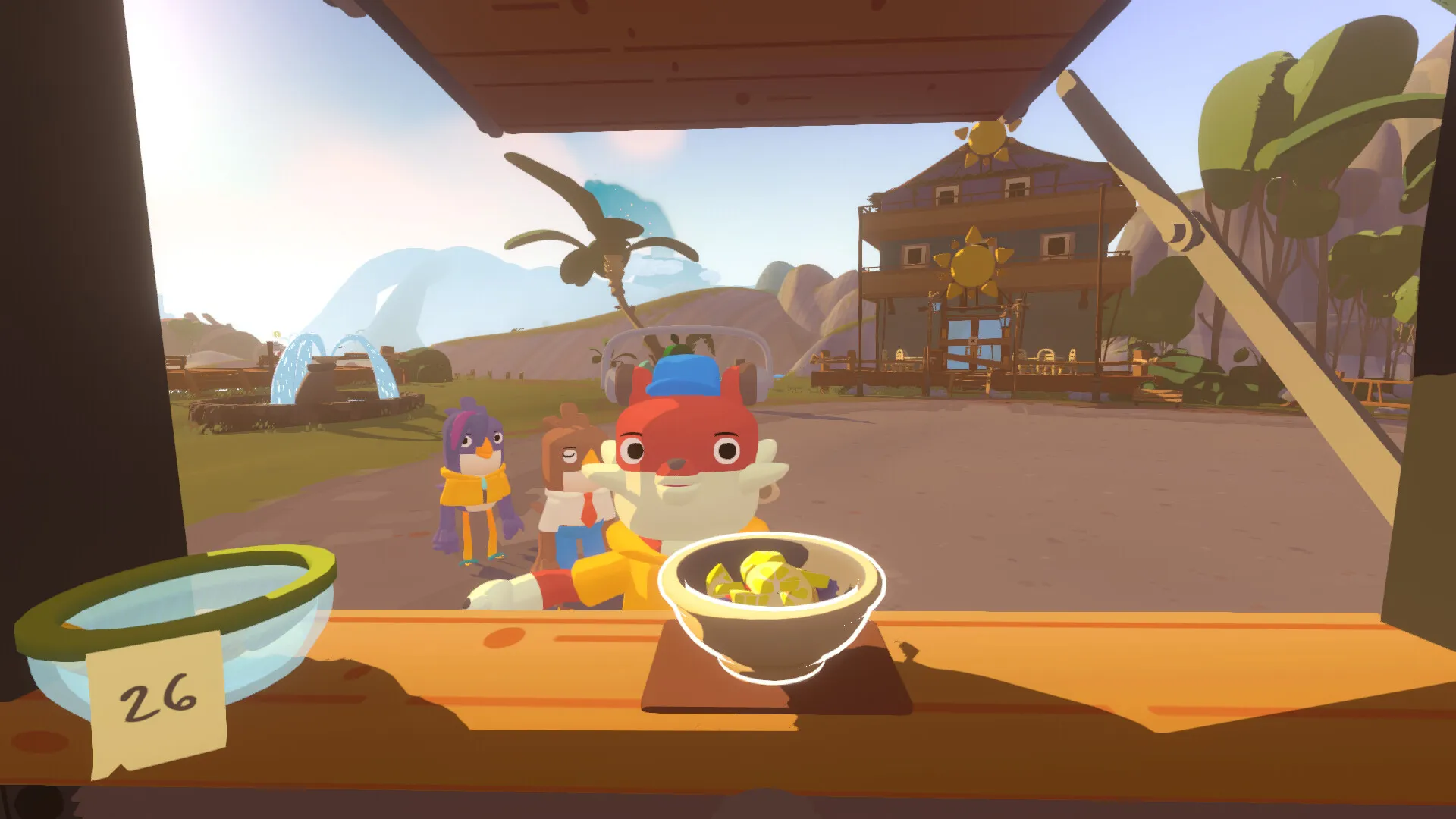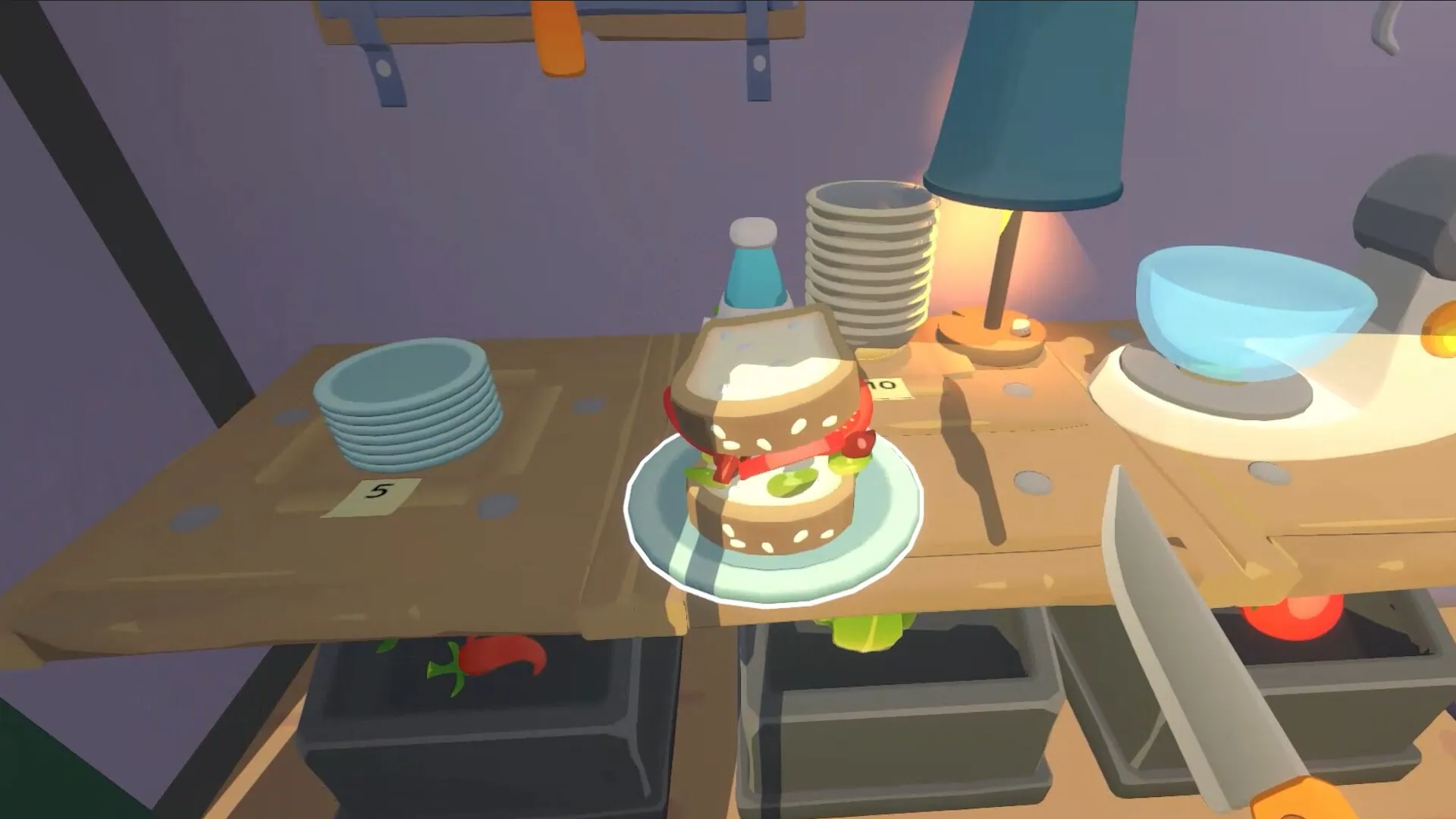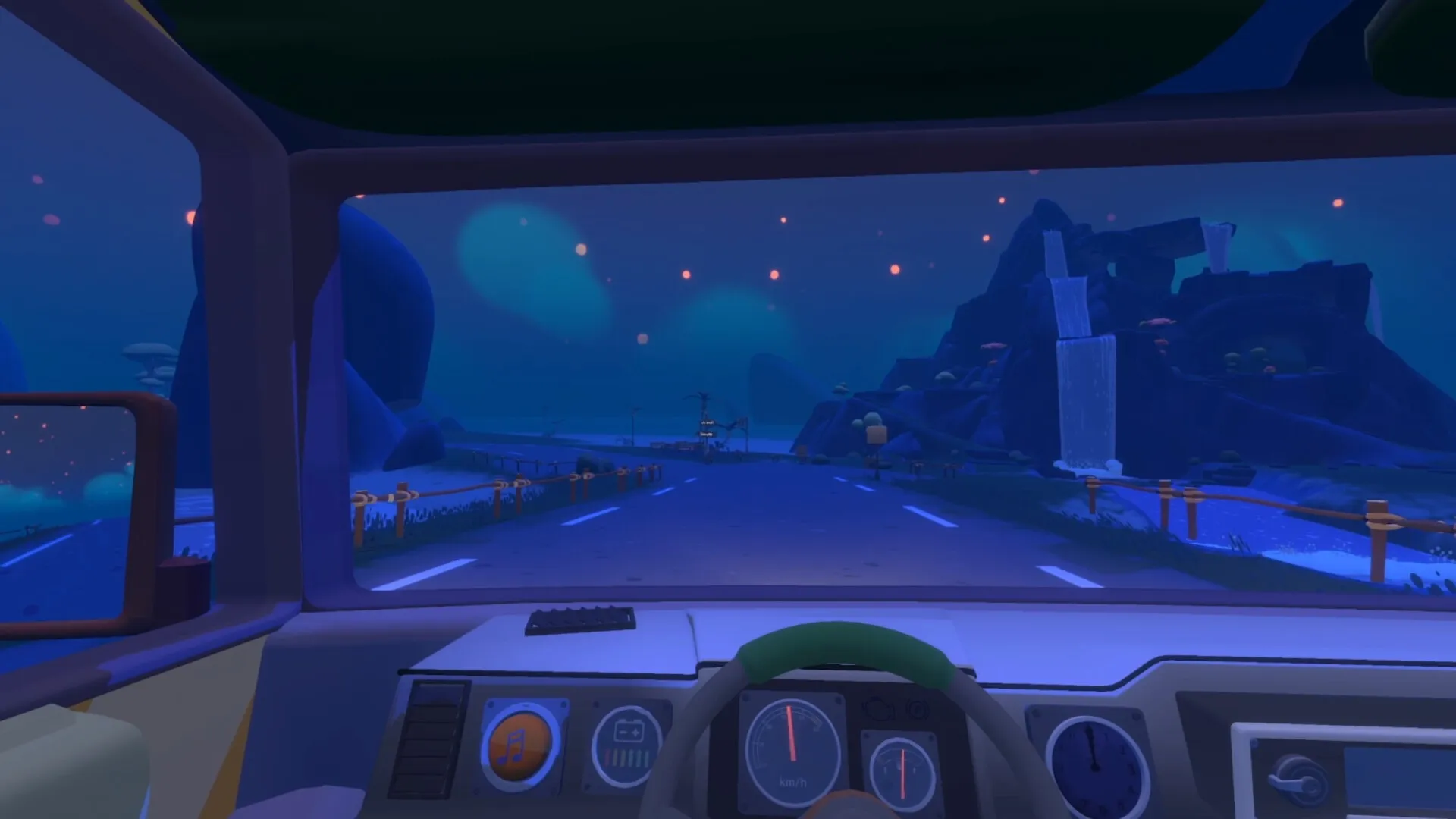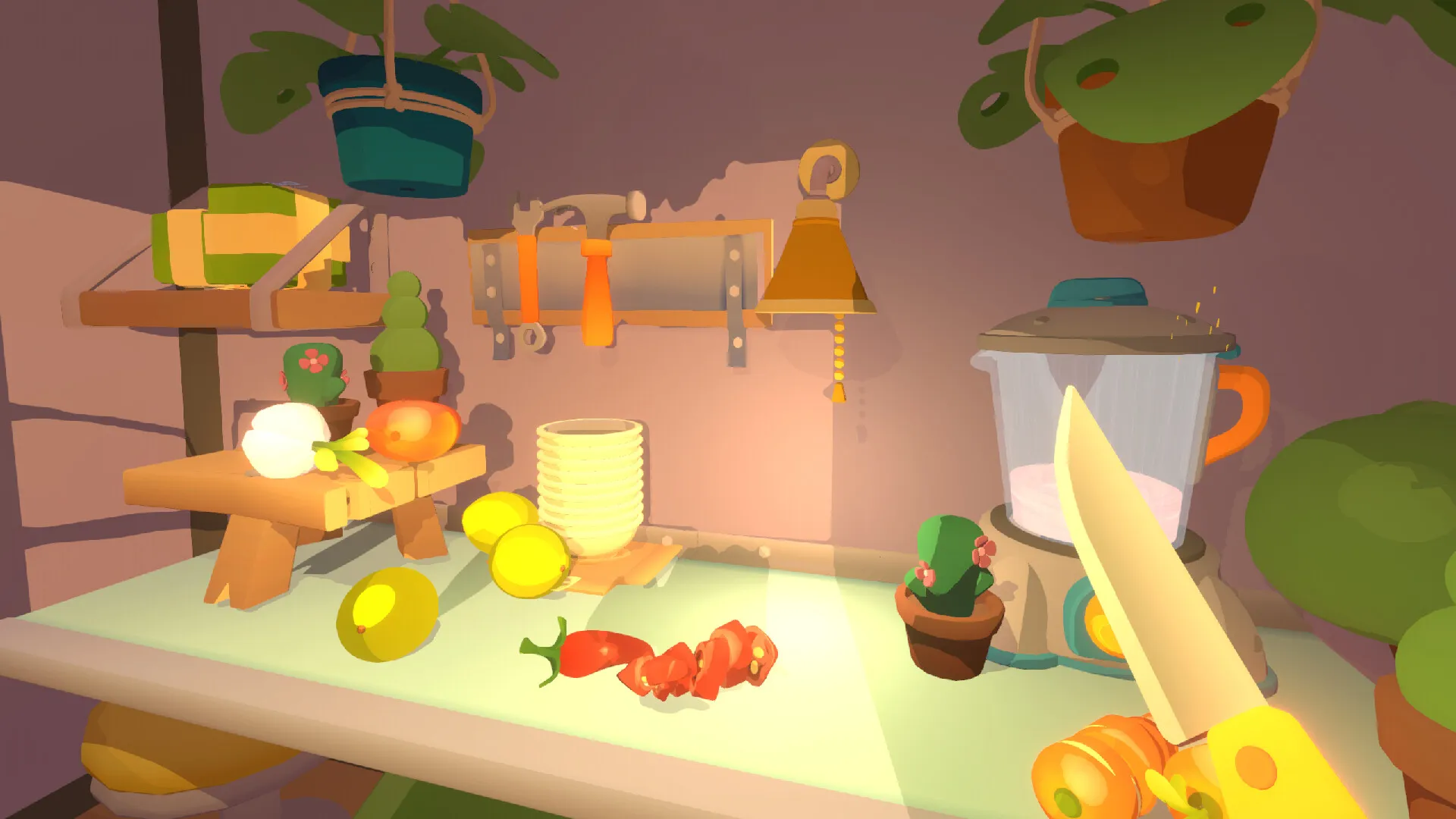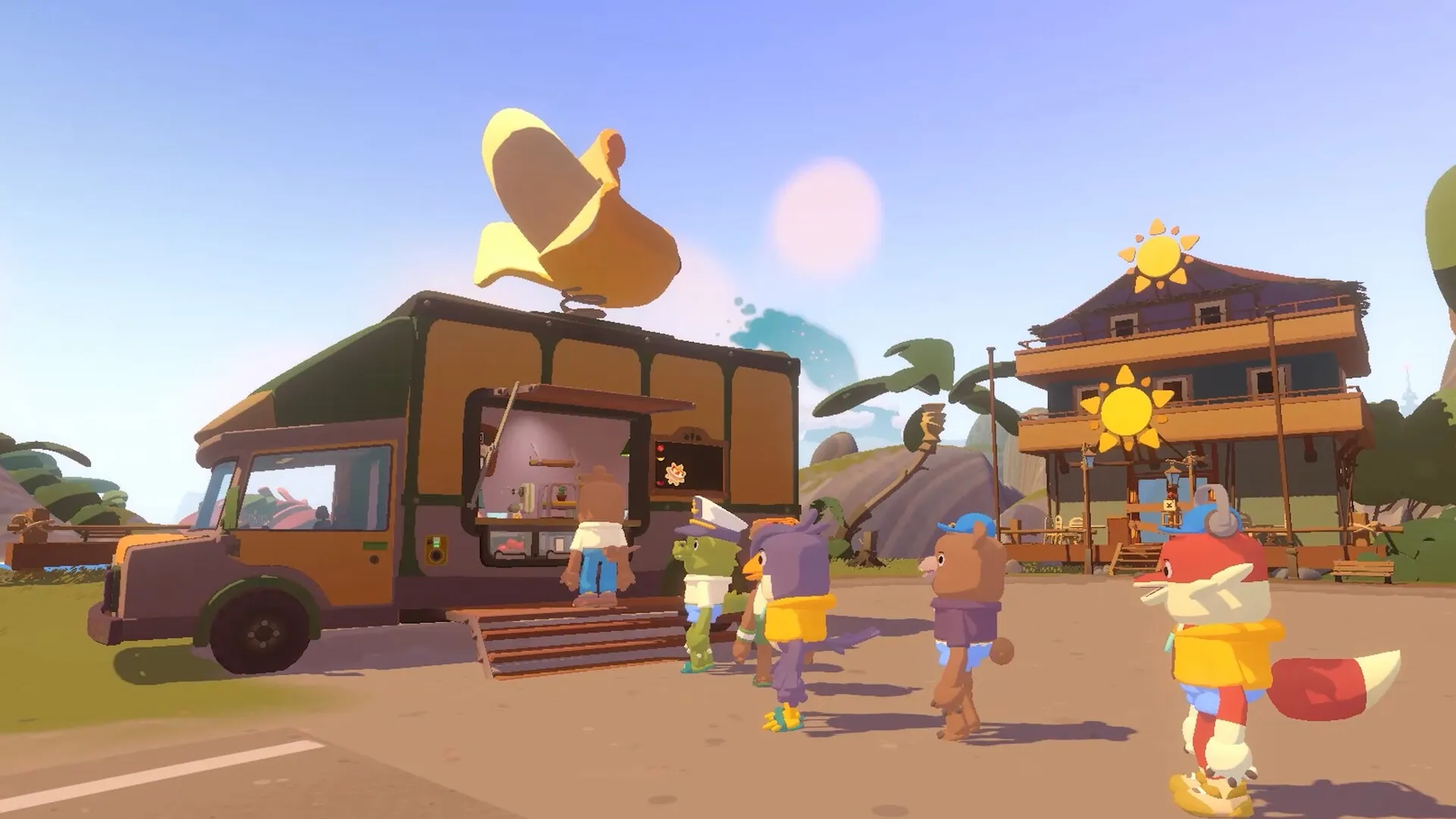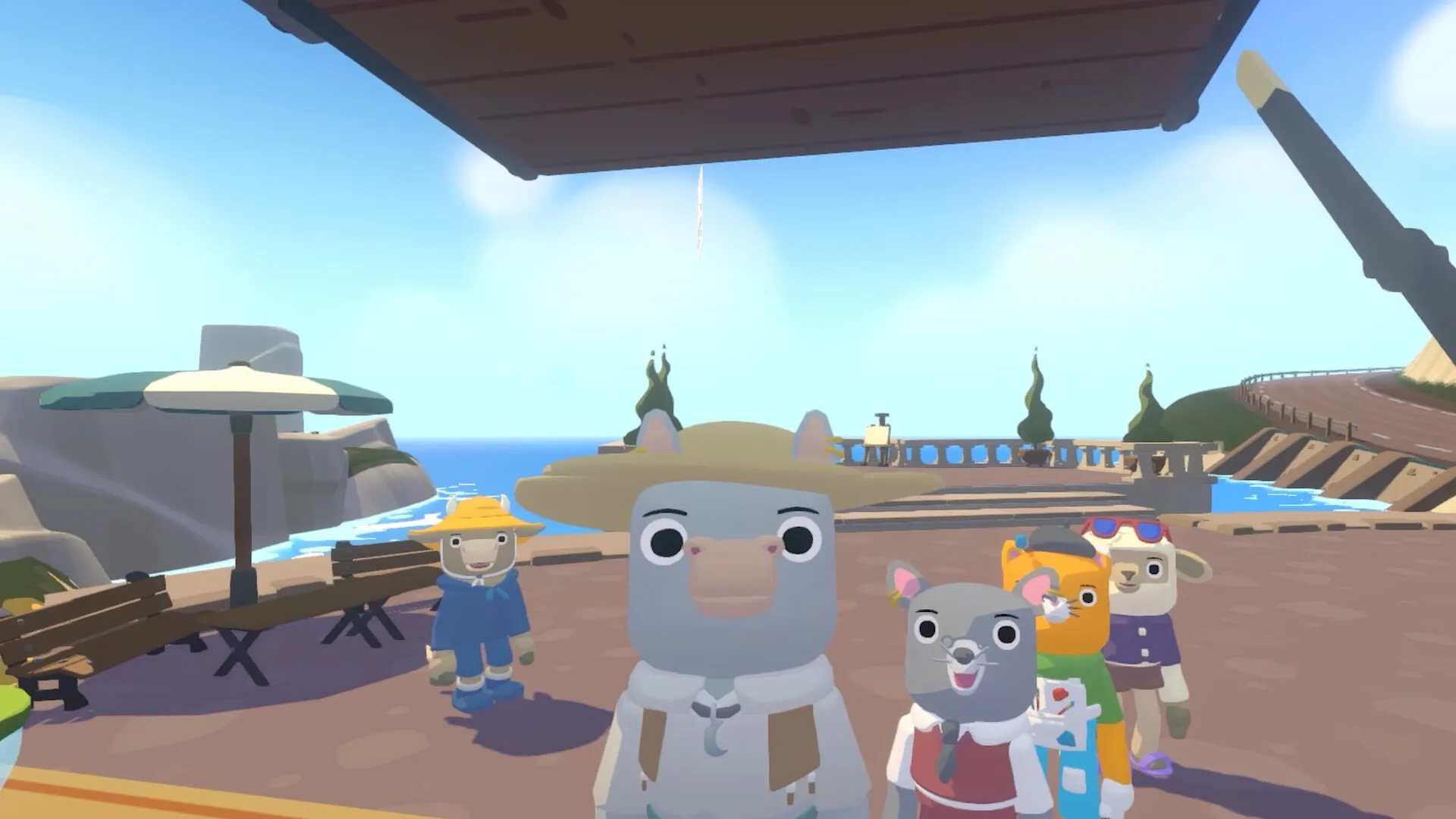Fruitbus stands out among independent games as a unique cooking journey that combines simulation, story, and emotional depth. This game, made by Krillbite Studio, takes place in a world where a food truck is more than just a vehicle. It’s a way to remember, connect, and leave a personal impact.
The players take on the role of a character who receives their grandmother’s beloved fruit truck and sets out on a heartfelt mission to reconnect with her old neighborhood and plan a final celebration of her life. The game takes a simple idea into a rich story experience. It takes place on three beautiful islands called the Bahamas.
The game revolves around foraging for ingredients, making your own recipes, and slowly winning over the locals through personal and food tasks. Fruitbus is a very gentle game with a low-poly art style and easy-to-use controls. Players can explore at their own pace and discover a touching story about family, remembering, and a love of cooking.
It’s no secret that Krillbite Studio creates immersive narrative experiences. In this delightful simulation, they use their signature storytelling style, offering players not just a game but a memorable journey of discovery and emotional connection.
Memories Served: The Heartbeat of Fruitbus
When you play Fruitbus, you don’t just get a food truck; you get a legacy full of memories, love, and unsolved family issues. When the main character gets to the Bahamas islands, they have to bring their grandmother’s ashes and give a farewell feast to bring her community back together after being spread out.
The journey starts with a sad backstory: sweet memories of playing hide-and-seek and making fruit salads with grandmother as a child stand in stark contrast to the present family conflict. The main character’s mother doesn’t like the idea of the food truck business, which adds another level of generational strife to the story.
Each island is a new chapter in the grandmother’s long and complicated social past. Non-playable figures (NPCs) aren’t just background figures; they have complex personalities with quirks and problems. These characters, ranging from troubled LARPers to an emo artist and a picky food critic, are pieces of the grandmother’s life, and each one needs a different recipe or quest to be persuaded to attend the farewell feast.
The game does a great job of balancing funny and sad parts. Strange exchanges, like carrying grandmother’s ashes in the passenger seat, mix dark humor and real emotional depth. Players have to find their way through a strange and deeply human world, and food becomes a way to connect, remember, and heal.
Fruitbus is about loss, leaving a legacy, and how food customs can bring people together across generations. It’s a story that turns a simple simulation game into a personal trip of remembering, highlighting how food can keep and honor personal histories.
Culinary Conquest: Mastering the Fruitbus Experience
Fruitbus turns running a food truck into a fun exploration, creativity, and strategic resource-gathering journey. Players start a trip with many parts that aren’t just a cooking simulation.
The main part of the game is a loop that is fairly easy to understand. Initially, players must go on a quest across three islands to find strange foods and veggies. Gathering these resources is an adventure in and of itself since each island has its own crops, ranging from chili peppers grown in volcanoes to rare foods that can be found in strange places.
The process of making recipes is incredibly simple. Get the materials, carefully chop them, and think of creative ways to assemble them. Some meals, like a simple salad, only need to be chopped up and mixed, but more complicated ones must be carefully chosen and put together. The lack of complexity keeps players focused on the experience rather than getting bogged down in the game’s rules.
Natural processes lead to economic growth. Sell food to people on the island to make money, then put that money back into improving your truck. Players can buy necessary tools like ovens, smoothie machines, and specialty knives that gradually increase the number of foods that can be made. The Fruitbus changes from a simple truck to a fully stocked mobile kitchen, giving it its own personality.
Exploration is fun because it’s not planned out. There isn’t a set way to move forward; players can explore areas, do side quests, or focus on the main story. Some resources, like chili peppers, are hard to get because they are rare and need to be collected with careful planning and patience.
Managing resources adds depth to a strategy. Players have to find a balance between gathering ingredients, buying gear, and finishing quests. Some ingredients respawn randomly, which adds tension and forces players to devise new tactics.
Because the game is open-world, each time you play, it will feel different. Players decide how fast or slow they want to go through the story, whether they do every side quest carefully or quickly.
Culinary Missions: Navigating Fruitbus Quests
In Fruitbus, quest-based gameplay is transformed into a careful dance of culinary diplomacy. The main goal, throwing a farewell feast for the grandmother, becomes a complicated web of social problems and food-related issues that need to be solved.
The main goal is for players to get seven RSVPs from people living on the islands, and each one needs a different strategy. These aren’t simple “get” tasks; they’re in-depth character studies. A food reviewer in the area might need a certain salad with rare chili peppers, while a sneaky islander might need to find their lucky coin before they can even consider going.
Side quests make the main quest more interesting. Players could help weird people form a band, fix a lighthouse, or figure out their own problems. These jobs aren’t just filler; they’re important to the game’s story and show how the grandmother’s legacy is connected to other things.
Making quests, on the other hand, can be hard. Goals can be incredibly hard to see. Finding a lost coin or certain ingredients takes much time and care. Some quests don’t give clear instructions, leaving players to wander around islands with little to no direction.
Progressing through islands makes the game more difficult. To reach new places, players must fix radio towers and pay tolls. These natural barriers keep the story from moving too quickly.
Most importantly, there is no time limit. It feels like real freedom because players can explore slowly or quickly to complete goals. The quest structure stays flexible and interesting whether you carefully complete every job or focus on the main storyline.
The main goal has always been the same: to bring people back together through the strong language of food, one recipe at a time, in honor of a grandmother’s memory.
Pixels of Personality: Fruitbus Visual Landscape
Fruitbus’s unique low-poly style turns simplicity into stories. The visual design walks a fine line between simple charm and story-heavy depth, creating a world that feels both familiar and alive.
The art style goes against typical game graphics by intentionally using over-the-top visual features. Simplified geometric shapes appear as characters and environments. Color and shape are better at communicating feeling than hyperrealistic rendering. Each island is like a well-balanced painting, with small towns tucked between wide, empty roads that beg to be explored.
Stop-motion animations give the game its own special look. Even though they might make some people uncomfortable, these slightly jerky, purposely awkward movements give every exchange a unique personality. The characters’ movements have a purposeful flakiness that fits with the story’s theme of how complicated people are.
Environmental design makes great use of limited space. Even though the islands are pretty small, each one feels very detailed. Volcanic scenery, rural areas with lots of windmills, and coastal areas all have unique looks that hint at deeper story elements.
Oranges, yellows, and soft greens that remind you of summers spent as a kid and making fruit salads at home make up most of the color scheme. These color choices aren’t just for looks but also emotional tale tools.
Fruitbus’s art style makes a funny and sad world, and each pixel tells a story of friendship, memory, and cooking adventure.
Sonic Journeys: The Soundscape of Fruitbus
Fruitbus creates its sound experience with the same careful attention to detail it uses for its visual and story parts. The music in the game fits in perfectly with the player’s cooking adventure, providing a calm background that recalls island life and old-fashioned road trips.
The radio in the game isn’t just background noise; it’s also a way to tell a story. Carefully chosen tracks blend in with the surroundings to create an immersive soundscape that turns boring tasks like gathering ingredients or driving a truck into memorable experiences. It sounds like each island has its own unique set of sounds that fill the world with life.
Sound design treads a fine line between realistic and cute. The sounds of footsteps, cooking, and the environment are a little stylized to fit the game’s low-poly look. The sound doesn’t just accompany the pictures; it becomes an important part of the story.
The dialogue presentation is very well done. Even though there isn’t much voice acting, the sound design makes sure that every exchange between characters feels important. Audio cues accompanying the text give talks about grandmother’s legacy and island life more emotional depth.
Fruitbus’s sound is like the music you’d hear on a road trip—sometimes sad, sometimes funny, but always very personal.
Pixels and Pitfalls: Navigating Fruitbus Technical Terrain
Fruitbus is the beauty of a lovingly independent work, but there are some technical issues. The game’s performance is patchy, with fun moments and annoying technical issues that can stop the cooking trip.
Most of the problems seem to be caused by bugs. Players say that important items mysteriously disappear, like ingredients going missing in the middle of a quest or quest items that can’t be found, and that there are problems that stop progress and force full restarts every so often. The game’s complicated quest system becomes especially weak, and goals may fail to trigger or get stuck for no apparent reason.
The user interface treads a thin line between simple design and useful complexity. The controls are a bit awkward, especially when moving around in the inventory or managing how complicated recipes interact with each other. Movement isn’t always exact, which can be annoying when you’re trying to interact with certain characters or objects.
Platform performance changes a lot. Users of the Steam Deck have had mixed experiences, with frame rates that don’t always match up and power drains that can happen during longer games. The recommended settings include lowering the visual details and monitoring the background processes to keep the game running smoothly.
Being responsive as a developer becomes a lifesaver. The first versions had bigger problems, but the regular patch updates show that the developers are committed to fixing technology problems. Most of the communication happens on the game’s main Discord channel, and developers are always looking for ways to improve the experience for everyone.
There is a positive side to accessibility features. With many subtitle choices and controls that can be changed, most players can make the experience their own, which will help with some technical issues.
Even with these problems, Fruitbus still has its core appeal. Technical issues don’t totally ruin the story; instead, they feel more like rough spots on an otherwise compelling experience.
Culinary Paths: Charting Your Fruitbus Journey
Fruitbus turns progress into an exciting, totally unpredictable journey. The most interesting thing is that it has an open world, so players can wander around three beautifully designed islands without being limited by the story.
Progress feels natural and is controlled by the player. Upgrading the Fruitbus isn’t just about making it run better; it’s also a story about turning an old, broken-down bus into a cooking powerhouse. From simple kitchen tools to high-tech cooking gear, each upgrade tells a story about how the main character becomes more connected to their grandmother’s legacy.
The three islands are very different from one another when it comes to exploring. There are different ways to complete goals, so no two games will feel the same. There are a lot of different things that can happen because of side tasks, hidden ingredients, and interactions between characters.
Different ways of approaching problems lead to replayability. Some might improve at cooking, while others emphasize making friends or completing quests. Because the game’s structure is flexible, players can make their own storylines, which turns each trip into a unique culinary adventure.
Fruitbus isn’t just about getting to the end point; it’s also about enjoying the ride, one meal at a time.
Serving Up Memories: Fruitbus Final Verdict
Fruitbus is more than just a game; it’s a touching journey full of pixels, cooking adventures, and deep emotional stories. Despite some technology problems, the experience offers something uncommon: a real chance to connect with others through food, a language everyone understands.
The game’s magic lies in making everyday things into important moments. Cutting up food, driving across islands, and slowly putting together a grandmother’s story all become relaxing activities beyond traditional games’ rules.
Technical problems and sometimes annoying task design don’t detract from the game’s main appeal. Fruitbus is a unique story feast for players who want a laid-back experience that strikes a balance between humor, sadness, and exploration.
This game is mostly suggested for people who like story-driven, slower-paced games with strange controls. This food adventure is best for people who like independent games and stories that are told with feeling instead of perfect technical execution.
Not perfect? Of course. Not forgettable? Without a doubt.
The Review
Fruitbus
Fruitbus is a charming, flawed gem that captures the spirit of family, memories, and trying new foods. The game's unique low-poly art style, emotional story, and new play methods make it more than a vanilla simulation game. There are some technical problems and frustrating quest designs, but the game's emotional depth and creative approach eventually shine through. The journey of remembering a grandmother's memory through food becomes a metaphor for getting better, making connections, and discovering more about oneself. People will be drawn into the game by its strange characters, beautiful island settings, and the story of loyalty between family members.
PROS
- Heartfelt narrative about family and legacy
- Unique low-poly art style
- Creative culinary gameplay mechanics
- Charming character interactions
CONS
- Technical bugs and glitches
- Occasional quest design frustrations
- Imprecise controls
- Performance issues on some platforms









































